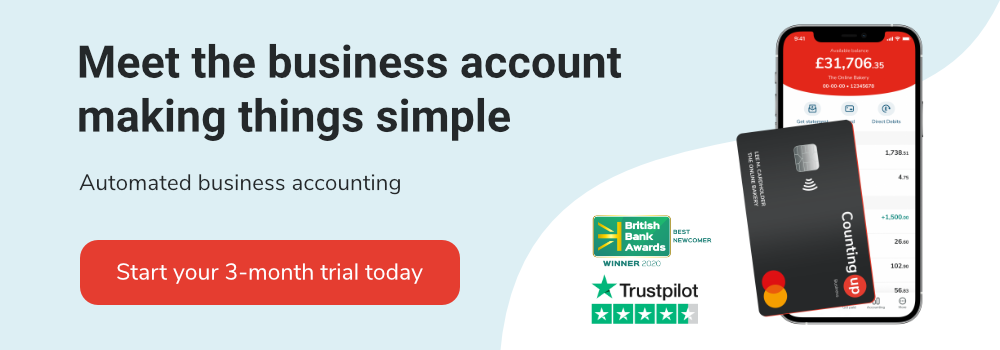Are all-in-one business accounts the future for sole traders?
Table of Contents
Tim Fouracre explains how a new concept could be a boon to the UK’s sole traders.
‘What if…?’ It’s the fundamental question behind all innovation. What if it didn’t have to take four weeks to open a business account? What if bank transactions could be categorised automatically in a current account? What if your business current account was also your accounting software?
Accounting Practice Online is part of the ICPA, which is an organisation designed to provide support and guidance for accountants in practice. With 35+ practice specific benefits there has never been a better time to join. Take a look at the routes to membership today.
These were some of the questions that gave rise to this concept. Until now, an all-in-one business account with inbuilt accounting software simply wasn’t possible, but thanks to the growth of mobile first challenger banks and developments in machine learning, application programming interfaces and cloud-based accounting software, the time is ripe for a new era of innovation.
And, with the impending advent of the Making Tax Digital (MTD) initiative, the all-in-one app will come as a relief to many small business owners and accountants alike.
A winning combination
As the founder and former CEO of Clear Books plc, I observed that the accounting software’s transaction import tool is the most popular feature; indeed, for many the account statement is now the primary method of recording debits and credits. Again, the ‘what if…’ question arose. What if you could combine the business account with cloud accounting software? What would that actually look like?
How much time do business owners currently waste on duplicating information? New suppliers, for example, must be entered into the business account as payees, along with details of the transaction.
The same information must then be added to the accounting software or spreadsheet.
Bookkeepers generally have to work through each transaction, updating the account code, VAT rate and contact information, reconciling statements and accounts. It works, but it isn’t as efficient as it could be.
The birth of Countingup
I created Countingup, the UK’s first business account that automates accounting, in October 2017 with one clear vision: a future in which payment services and accounting are combined to simplify life for the 4.2 million sole traders in the UK.
Those who currently use paper records or spreadsheets have the most to gain from switching to an all-in-one tool, although accounting software users will also feel the benefit; time currently spent on updating duplicate information and reconciling transactions will be freed up for other, more enjoyable business tasks.
One unified will be intuitive and inherently easy to use. You’ll have a business account number, sort code and MasterCard for all your payment services. You’ll be able to create invoices quickly and have them sent automatically; late payers will be chased up for you. Incoming transactions will be automatically updated, categorised and reconciled.
The application allows users to submit VAT returns, generate profit and loss reports and set up direct debits and make faster payments. It will also have MTD capability built in to allow accountants to make the quarterly MTD submissions with ease, a crucial feature that will reassure many in the months to come.
Thanks to this real-time view of a company’s finances, accountants will be able to offer clients more pertinent, up-to-date advice — a benefit to both parties.
Sophisticated service, simple sign up
The advantages for SME owners — and their accountants — are clear, but what of the hassle that inevitably comes when opening a new account? Typically, opening a new bank account can takes weeks of back and forth with the bank, filling in endless forms, providing ID and waiting weeks for your card to arrive. With time at a premium for entrepreneurs, it’s little wonder that this is a daunting prospect. With Countingup, applying for an account couldn’t be easier. Sign up takes only five minutes and you can apply directly from your smartphone. You’ll receive a UK account number and sort code and your contactless MasterCard will arrive the next day, ready for you to start spending.
Cloud accounting software and the rise of mobile first challenger banks have already begun to change the financial landscape for sole traders and SMEs and the launch of MTD next year will propel even the most hesitant of business owners into the digital age. Add to this the fact that a report by PwC indicates that, by 2020, 50% of the country’s workforce will be made up of millenials, it’s clear that we need to offer the next generation of entrepreneurs a more sophisticated solution to their business financial needs.
It’s time to answer ‘what if…?’
What if you only had to dedicate five minutes each week to your bookkeeping? What could you achieve with the extra time to work on business growth? What if you knew exactly how your business was performing in real time — how would that affect your planning and expense strategy? What if MTD didn’t have to mean an increased workload for you and unwelcome additional fees for your clients?
What if your business current account was also your accounting software? That’s what we’re building at Countingup.
- Tim Fouracre is founder and CEO of Counting Up. See https://qa.countingup.com/
Receive actionable business tips weekly
By submitting this form, you confirm that you are 16 years of age or over and that you have read and agree to our Privacy Policy. You can unsubscribe at any time.




